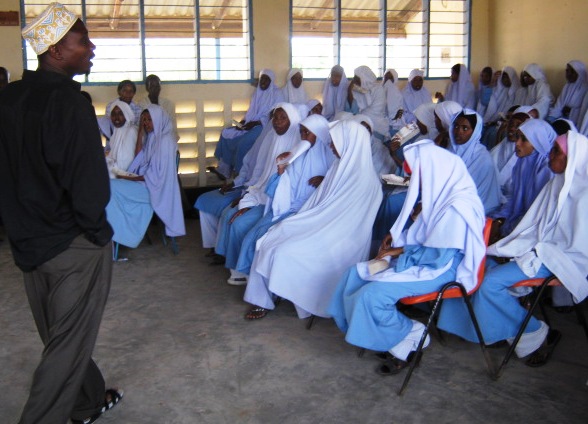Published
6 years agoon
By
Kulan Post

852,000 school going children from Mandera, Garissa, Wajir, Marsabit, Tana River and Isiolo counties are not in schools.(Courtesy)
THE FRIDAY BULLETIN
GARISSA—The ministry of education has flagged six Muslim populated counties in the country with a high number of children out of school.
Director of primary education Habat Abdi said 852,000 school going children from Mandera, Garissa, Wajir, Marsabit, Tana River and Isiolo counties are not in schools.
Nairobi, which has also a substantial number of Muslims also featured alongside West Pokot and Turkana that have few high numbers of children who are not in school.
Habat said the children missing from schools from the six are aged between six and 17 years old adding that the statistic is worrying.
According to the statistics, Mandera is leading with 124,000 children out of school which is 15 per cent of the total number of children eligible to be in school.
“Unfortunately a third of those not in school are children with disabilities. There is a need for parents should avoid discriminate their children and send all to school,” he added.
He added that those with disabilities should be taken to schools which have already mainstreamed Special Needs Education while those with extreme or severe conditions should enroll in existing special
schools.
The director further called on professionals and leaders from those counties to help empower residents of the affected counties on the importance of taking their children to school.
He said education is key to unlocking some of the critical challenges affected residents of Garissa, Mandera, Wajir, Isiolo, Tana River, Marsabit, Turkana and West Pokot.
In 2014, the government with development partners launched a programme intended to increase enrollment and retention of pupils in schools in those counties of Arid and Semi-Arid Lands (ASALs).
This followed concerns that many children of school going age from the pastoralist communities are still out of school despite the introduction of free primary and subsidized secondary education.
The ‘Modeling of Integrated Nomadic Education, Child-Friendly Schools and Water, Sanitation and Hygiene (WASH) Programme in the dry regions of Kenya’ aims to improve access to education through the introduction of low-cost primary boarding schools.
It is targeting an estimated 35,000 direct beneficiaries and 3.5 million indirect beneficiaries
aged between 4-18 years in Garissa, Wajir, Isiolo, Turkana, Tana River, Mandera, Marsabit and Samburu counties.
The programme was funded by the Department for International Development (DFID-UK) and implemented by The United Nations Children Fund (UNICEF) in partnership with Kenya Primary Schools Head Teachers Association (KEPSHA), NGOs and local communities.


Wajir gang-rape: Police in pursuit of 5 suspects, one in custody


Provide land to set up development projects, Mandera West MP Adan Haji urges local residents


“We will not accept 2019 census results to conduct boundary review”: Northeastern leaders


Top Garissa University officials met with Permanent Secretaries, legislators from Nothern Kenya amid expansion plans


Father sheds tears as he seeks support for his son who’s studying Medicine at University of Nairobi


GARISSA: Houses destroyed as leadership wrangles at the East African Pentecostal Churches continues
